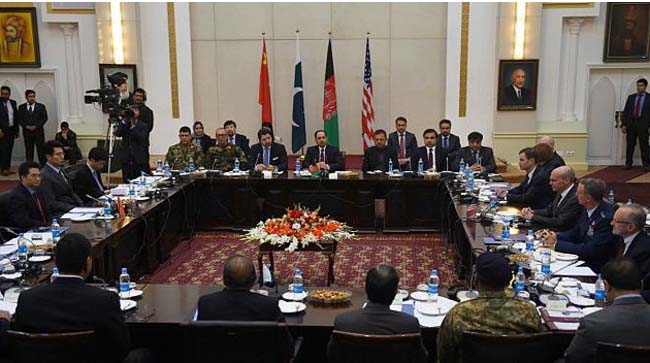More than a decade of war in Afghanistan against Taliban insurgents has now reached to the point where everybody seems to agree that peace can only be restored through negotiations. Has not this realization come a bit late, or the realization was made earlier but the efforts were not genuine? And, what has been lost through this period? Moreover, who are ones who should shoulder the responsibility of the losses made during this period? Have they been held accountable? There are myriads of such questions which do not have clear answers for the people of Afghanistan, who seem to have received most of the losses. Anyhow, keeping these questions aside, and believing in the proverb: it is never too late; we can concentrate on the efforts that are being made to make the negotiations with Taliban a success now as for Afghanistan it is really imperative that a negotiated, fruitful and enduring peace should conclude years of fighting and violence. The people of Afghanistan have been waiting for such a conclusion but their dreams have not turned into reality. Previously as well, they were given the good news about such efforts but that could never materialize. The important factor is to observe what will be the outcome of new efforts that are being made.
To make preparations and pursue negotiations with Taliban a Quadrilateral Coordination Group (QCG), including Afghanistan, Pakistan, US and China, has been formed that had its third meeting in Islamabad on Saturday February 06, 2016. The first QCG meeting was also held in Islamabad, which discussed the committee’s work. While the second meeting in Kabul discussed the entire spectrum of renewable peace talks with the Taliban. And, in the third meeting, the roadmap for peace negotiations was discussed, following which, there are hopes that Afghan government can have direct negotiations with Taliban.
In yesterday’s meeting there were clear indications by Pakistan that it would pursue true peace and would coordinate for the same purpose. Pakistan’s Foreign Affairs Advisor Sartaj Aziz renewed Islamabad’s commitment to long-term peace and stability in Afghanistan.
He emphasized that political reconciliation was the only viable option for promoting peace in Afghanistan and said that violent activities will have to be stopped for the success of the dialogue process. He also accepted that the people of Afghanistan have been suffering from an unending cycle of violence for decades and they need lasting peace and stability.
Though Pakistan has shown its commitments regarding cooperation in peace talks several times, Afghanistan has not been very confident about the role of Pakistan. The relations between the two countries reached to their lowest point when the news of Mullah Omar’s death was revealed after the Murree talks. However, since the Heart of Asia Conference, there seems to be a revival and it has been strengthened by the role and support of China and US as well.
The Afghan delegation was led by Hikmat Khalil Karzia, the Deputy Foreign Minister, and it also launched the meeting. The Afghan delegation showed great hopes that the meeting would give a final touch to the strategy upon which future talks with the insurgents would take place and would pave the way for direct talks with Taliban. Hopefully, this hope may turn into a reality.
Afghanistan should take advantage of the change in the scenario, and must strive to pursue its main objectives. The important achievement for the Afghan government would be to make Taliban ready for a peace process and negotiate for a cease-fire.
If Taliban get ready for a cease-fire it would mean that they are really ready for negotiations. No peace process can succeed unless the clashes stop and the parties in the war are ready to lay down their arms. In addition as Afghanistan has spring and summer seasons ahead there are possibilities of rise in insurgency by Taliban. Therefore, a cease-fire before that would be a great achievement and would be great news for the common masses as they have been suffering from the offensive to a large extent.
Another important factor for Afghanistan would be to convince Taliban to accept Afghan constitution, which seems a bit difficult as Taliban have always strived for a Shariah-based law in the country. It is really a Herculean task to make them ready to respect Afghan constitution and abandon their demand for a Shariah-based law as they are gaining strength on the battle-ground. They are even insisting on their own terms and conditions for the peace talks. However, for Afghan government, it would be a great loss if it compromises on its constitution which is result of years of struggle for a democratic system and for which the Afghan people and the soldiers have given large number of sacrifices.
Afghanistan, as a top priority, needs to reach to a conclusive position regarding terrorism, if it wants to continue its journey towards a democratic and peaceful state. President Ashraf Ghani had clearly indicated that he is serious about the issue and has always called for a regional and global cooperation to eradicate terrorism. Nonetheless, it is more important that Afghanistan must have its own strategy bold and clear regarding the issue and must follow the same through actions, not words alone, as there is no more time for words.
Home » Opinion » Third QCG Meeting
Third QCG Meeting
| Dilawar Sherzai

